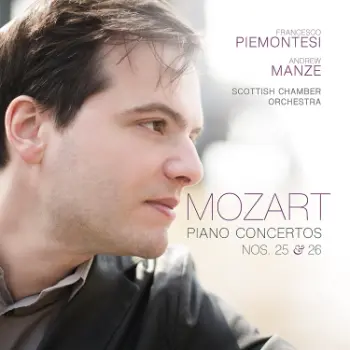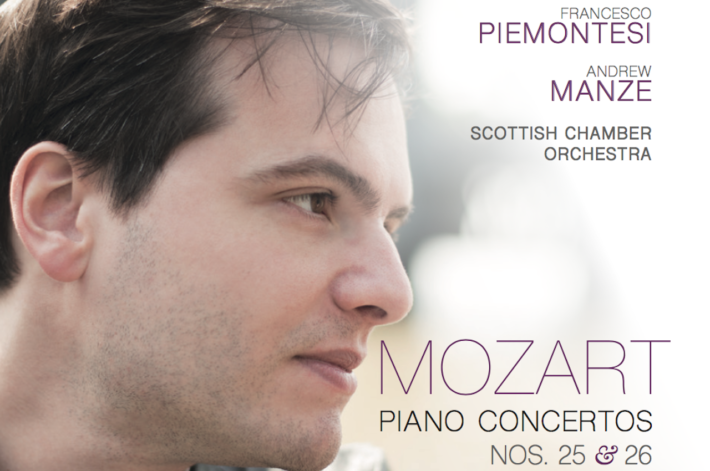One has to acknowledge Francesco Piemontesi’s re-affirmation of his affinity to the 18th classical style. It can be seen as bold to start off a new recording collaboration with Mozart (This is Francesco’s first album on the Linn label), as opposed to old warhorses such as Tchaikovsky or Rachmaninov. Piemontesi is a wonderful Mozartian, a composer with which he plays freely, almost improvisatory, adding well informed ornaments and lead-ins. K.537 requires this in particular, as some of the score remains in a fragmented state.

Check offers of this album on Amazon.
Andrew Manze conducts to Scottish Chamber Orchestra as a proper period instruments orchestra, so much so that I had to look up in the booklet and elsewhere whether the violins are using baroque bows and gut strings. They apparently do not. The timpani punches a split second before the beat, trumpets sharping in tone on Fortes. When the orchestral introduction was finished, I was half waiting for a fortepiano to come in, made aware of how different modern grand pianos are in terms of volume and dynamic range.
The performance is, therefore, a game of balance; Piemontesi sounds cautious not to overshadow the orchestra sometimes, this especially evident in the first Concerto in the album, No. 26 (“Coronation”). Having said that, the performance of this piece is so engaging and ear-opening that qualms such as these are put aside. It’s been a while since we had an excellent coronation concerto version, and this one definitely encourages to revisit this less-often-performed piece.
With the second Concerto in the album. No. 25 (K.503), we enter into a more balanced world, quite literally — The piano is less close-miked and has a more air to it, merging into the orchestra accompaniment more naturally. As with the Coronation Concerto, the slow movement is a highlight, keeping a wonderful concentrated movement. First and final moments are uplifting without sounding comical, and the Concerto finishes with a high spirit.
So with some reservation, a great achievement. No. 26 will always be compared to two classic performances — Casadesus with Szell on Sony (then Colombia) and Pires with Abbado on Deutsche Grammophon. This recording will not replace, but supplement them. It’s certainly an interesting attempt to bring together modern instruments with period style, and I for one will be coming back to this recording many times.

Mozart — Piano Concertos No. 25, 26 (“Coronation”)
Francesco Piemontesi – Piano
Scottish Chamber Orchestra
Andrew Manze – Conductor
Linn records, CD CKD 544

Check offers of this album on Amazon.
Album Details |
|
|---|---|
| Album name | Mozart – Piano Concertos No. 25&26 |
| Amazon Music link | Stream here |
| Apple Music link | Stream here |
| Artists | Francesco Piemontesi, Andrew Manze |

















